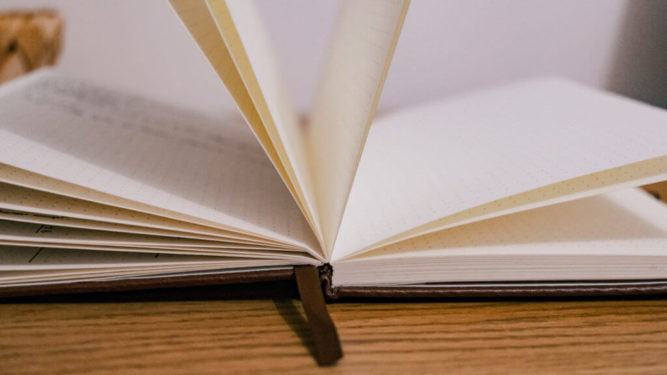NB – this post was updated in December 2025. Best of luck to all students sitting their GCSE English exams next year!
There is no sure-fire way of achieving a 9 in English Language, but these tips may help you get one step further to the elusive top grade:
1. Research the mark schemes
All exam boards publish their mark schemes on their websites and it is useful to spend some time looking at the very top levels and pick out the key skills tested for each question and the key descriptors. The bullet points in each band of the mark scheme separate the different skills being tested for that question and so careful scrutiny of these will allow you to ensure that you are really including everything that the examiner is looking for. You might find the following links useful:
2. Be ‘perceptive’
Typically, the key descriptors you find in the top bands of every mark scheme for the Reading section of the exam will include words such as ‘perceptive’ or ‘insightful’ – but how do you ensure that you are being perceptive? What makes an answer insightful? This is a difficult quality to pin down and some say it can’t be taught: you are either perceptive or you are not. However, there is a simple tip to help nudge your answer towards one that could be seen as perceptive and it is to explore other interpretations. Whenever you are analysing a linguistic or structural technique don’t just give one possible meaning, add a sentence: “this could also mean…” and give an alternate interpretation. By adding a different, alternate view of what the writer might be trying to say then you are really exploring the text to the fullest and more likely to reach the top bands of the mark scheme.
3. Use higher order terminology when analysing a text
Most mark schemes also include the words ‘confident’ or ‘assured’ in their top band descriptors and using the correct terminology and being able to identify more specialised techniques will help your answers come across this way. You can find plenty of glossaries of literary terms online and it is worth learning the terms and practising identifying them. You should also ensure you are familiar with the basic word classes (noun, adjective, verb, adverb etc.) and try and use them in your answer to make it sound as academic as possible: Instead of saying “this word shows us…”, specify “this adverb shows us…”
4. Squeeze all the juice out of a quote!
When analysing language don’t just think of quotes as a single image in themselves but consider individual words within them. A good technique, once you have analysed a quote as a single image is then to ‘zoom’ on specific keywords within that same quote to add further layers of analysis. Talking about the effect of a simile such as “the sky glowed like gold” by saying it shows how beautiful the sky was is just one layer, you should also ‘zoom’ in on those keywords and explore their connotations. For example: “The noun ‘gold’ makes the sky seem precious as gold has connotations of wealth and rarity and the verb ‘glowed’ has connotations of softness and warmth which further add to the effect of the sky as mystical and sublime.” Just thinking about the effect of individual words can add so much more to your answer.
5. Familiarise yourself with a wide range of texts
You don’t have to read a novel a week, but you do have to be familiar with a range of texts to be confident in tackling what you might come across in the exam itself. Chief amongst these is the nineteenth century text. Vast amounts of these are available online or free to download on devices such s a Kindle. Reading extracts from these on a regular basis will help you to become familiar with the common vocabulary used in the period as well as the more complex sentence structures and grammatical forms. If someone is described as having a ‘tallow countenance’ then it is useful to understand not just that this means a pale face, but specifically what ‘tallow’ is and why that is such a specific description! Also, you will be required to analyse non-fiction and write in a variety of non-fiction styles so seek out magazine and newspaper articles, famous speeches, letters diaries and autobiographies to really get a feel for how these different texts are structured and their individual styles and tones of voice.
6. Practise analysis
Many students say that you can’t revise for English language because the texts are unseen, but this is quite simply not true. Like any exam, the more revision and practice you do, the more chance you will have of achieving a grade 9. Choose an extract from any text and practice identifying literary techniques, think about their effects, look at how the extract is structured and why you think the writer chose to do it this way. Whenever you read anything train yourself to think like the writer. Why did they use that particular word or metaphor? What could they have meant by that specific image? What do they want the reader to feel at this point? Understanding the writer’s process means you are exploring the text and therefore gives you more scope to be insightful and perceptive.
7. Don’t rush the writing section
It’s tempting to dismiss this part in your revision as the reading is the more technical of the two and consists of several questions whereas the writing is just one part. However, in nearly all exam boards the writing forms 50% of the overall grade. You should leave yourself equal time in the exam for the one writing question as you did for all the reading questions and, if this isn’t possible (as some exam boards have more reading questions than writing) then you should still ensure you commit at least 45 minutes to the writing task. Plan it, write it, proofread it. Spelling, grammar and punctuation all count here and careless mistakes could cost you marks. A five-minute check at the end could be the difference between an 8 or a 9 grade. It’s obvious that you need to use a wide range of vocabulary for the top bands it the mark scheme but other things that set a top band writing answer apart are:
Be more ambitious with your punctuation
Don’t just stick to commas and full stops: use dashes, semi-colons, brackets and ellipsis.
Try mixing up your sentences
Use short sentences sparingly for effect and vary your sentence starters, try flipping your sentences sometimes and starting with a subordinate clause or beginning with an adverb. Instead of writing “I opened the door quickly although I was terrified of what might be inside”, try: “Although, I was terrified of what might be inside, I opened the door quickly” or: “Quickly, I opened the door; terrified of what might be inside”. Play with language!
8. Use the exam to help you
In each paper there is a reading section and a writing section. Look back at the reading section – these texts have been chosen because they are great examples of what a writer can achieve so use them as inspiration. In the fiction paper look at the literary techniques used in the extract and try to use similar techniques, see how the writer has built an atmosphere in the extract and borrow these ideas to do the same. Do not copy phrases but borrow ideas and techniques in order to craft your writing piece like a master craftsman!
9. Consider getting some one to one support
One-to-one support, guidance and feedback from a tutor is invaluable when it come to achieving the higher grades, giving you extra time to work on exam technique and individualised, real-time responses to push you that little bit further to achieve excellence. A tutor who happens to be a qualified and experienced subject specialist, with experience of assessing exam papers, is even better!
10. And a bonus tip… Improve your vocabulary to improve your grades
Examiners love to see more complex vocabulary, when appropriate. Why not read this guide to improve yours today:

